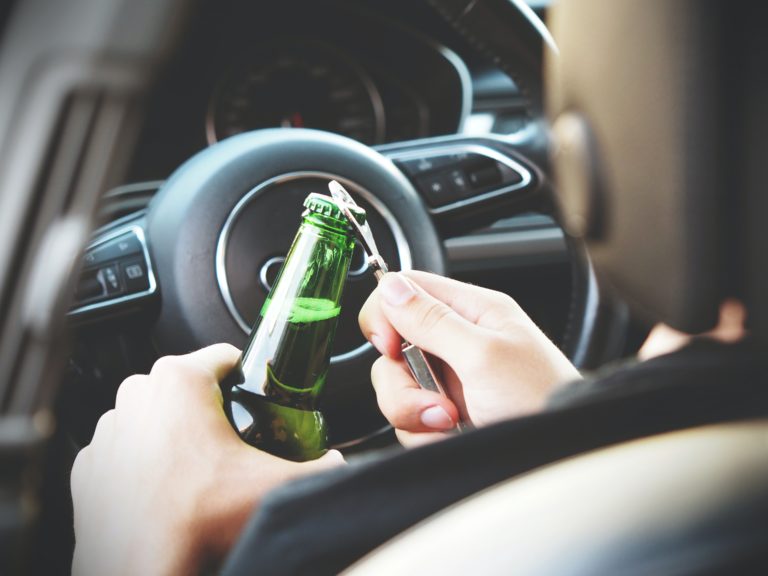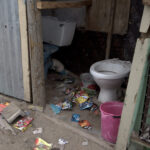South Africa has a drinking problem but research reveals a few things that could help curb harmful alcohol use in the country.
South Africa banned the sale of alcohol early in its response to the coronavirus pandemic to free up hospital beds. Now, as the country moves towards easing its lockdown ban on liquor sales in June, public health experts say it’s an opportunity to promote responsible drinking in South Africa.
Dangerous alcohol use in the country comes at a huge cost.
Every day, an average of 171 people in South Africa die from alcohol-related causes, a 2018 study published in the journal BMC Medicine found. And, although recent data is scarce, 2009 projections from the South African Medical Journal shows alcohol-related harms could cost the economy R263-billion annually.
On 1 June, limited alcohol sales for home consumption will resume in the country after a two-month hiatus during the country’s coronavirus lockdown. Restaurants and bars will remain closed, President Cyril Ramaphosa announced last week.
All this harmful alcohol use does not have to return, says Zane Dangor, a special advisor in the department of international relations and cooperative governance. Dangor was the special advisor to former Social Development Minister Bathabile Dlamini when she led the interministerial committee to combat substance abuse.
“We will never have an alcohol-free society. It’s about having good regulations. The post-covid world should be led by evidence.”
Here are four things the government can do to help build a safer South Africa.
1. Ban the sale of beer in larger containers
South Africans consumed about nine liters of pure alcohol each in 2016, the World Health Organisation estimates. That’s nearly three liters more per person on average than other African countries.
One way to curb this kind of heavy use could be to restrict the sale of beer sold in larger containers, such as one liter bottles, says Charles Parry, who heads up the South African Medical Research Council’s (MRC) unit on alcohol, tobacco and other drugs.
Large containers increase the likelihood for heavy drinking, he says.
People who drink from an above average size container are about eight times more likely to drink heavily than those who drink from regular vessels, according to 2018 research published in the journal Substance Abuse Treatment, Prevention, and Policy.
Regular container sizes were determined depending on the drink – for example 330ml for low alcohol beer, half a liter for home brewed beer and 150 ml for wine.
2. Find out what the people want
Government must find out how South Africa’s ban on alcohol sales affected everyday South Africans during the lockdown, says the director of the Southern African Alcohol Policy Alliance’s (Saapa) local arm, Maurice Smithers.
This way, policy makers can gauge whether the lack of alcohol made any improvement on quality of life, especially in communities that experienced problems with alcohol use before lockdown. Armed with this knowledge, the government can begin phasing in regulations that keep communities’ wellbeing in mind.
Research suggests there is wide support for tighter alcohol regulations among South African adults. Half of 1920 surveyed drinkers in Tshwane supported increased restrictions on alcohol, including raising the legal drinking age to 21, limiting the number of outlets in a given area and restricting operating hours for bars and shebeens.
In contrast, the 2017 study published in the journal Drug and Alcohol Review in 2017 found a lack of support for proposals to push up liquor prices.
3. Ban alcohol advertising except in shops or online sites where liquor is sold
South Africa’s existing Liquor Act prohibits misleading promotion, but marketing of alcohol remains unregulated in the country. Now, Parry says it could be time to phase in the liquor advertising regulations proposed by the 2013 Control of Marketing of Alcohol Beverages Bill. The legislation, which was approved by Cabinet but has never been made public, proposed an alcohol advertising ban except at the point of sale.
A review of 13 studies published in the journal Alcohol and Alcoholism in 2009 found exposure to alcohol marketing increased the likelihood that young people would start drinking. In adolescents who already drank, seeing adverts for alcohol products increased the amount they consumed.
Exposure to alcohol advertisements was linked to intimate partner violence and community drinking in a study of more than 1 000 women in Tshwane and three rural municipalities in the Western Cape. The research was published in the Journal of Studies on Alcohol and Drugs in 2018.
4. Make it easier for people with alcohol use disorders to get help
Under level four of the country’s lockdown, South Africa just turned off the taps with little support for people with alcohol use disorders, Parry says.
“We have to make it clear we’re a caring country and recognise that some people might be struggling.”
Under level three of lockdown, people going through withdrawals will be able to buy alcohol again, but Parry argues even people who have a binge drinking habit must be given support.
Half of South Africans who drink do so heavily, shows the country’s most recent Demographic and Health Survey and 2018 data from the World Health Organisation.
He explains: “We’ve got such a problem with drinking in this country. If we had responsible drinking we wouldn’t have needed the ban.”
Joan van Dyk was a health journalist, senior health journalist and news editor at Bhekisisa between 2017 and 2023.





